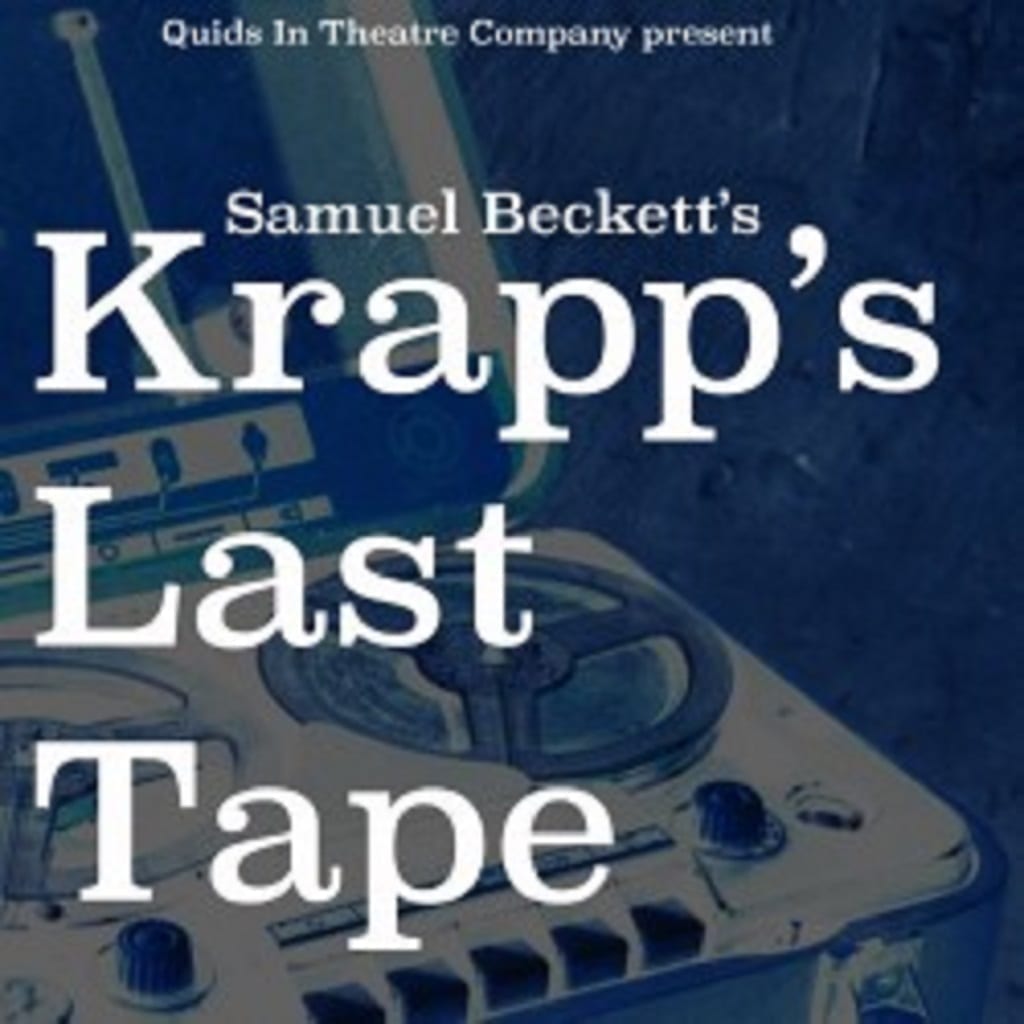The scene is drab and dreary: Krapp sits at his desk, consulting a ledger and concluding that he needs to find a particular tape: “Box three, spool five.” Krapp is celebrating his 69th birthday in this rather dire room, and the tape is a recording of him at age 39, which he listens to and remembers with mixed emotions.
This is a one man one-act play, written by Beckett in 1958. Krapp is a decrepit old man. He is on the brink of exhaustion, weary in his bones, sluggish, and given to habitual drinking: he is threatened constantly by his own degeneration. He listens to his own voice, which has noticeably more vigour than his present self, recounting the death of his mother and a romantic encounter with a woman. Krapp muses on the recording and the “stupid bastard I took myself for thirty years ago”. It seems that Krapp is always destined to loathe his past: his present self will reflect on his life and grimace ad infinitum.
Krapp’s actions do nothing to respect the past: he fast-forwards and rewinds tapes. He denies or repeats certain parts, obliterating the linear truth. The stage is full of Krapp’s clutter: boxes, tapes, banana skins and the tape machine (kudos to the production for finding this gorgeous item). Krapp moves about in a prison of his own devising, choosing memories to relive, and exhibiting an obsessive interest in nostalgia. His circular existence is comically exhibited in miniature when he slips on a banana skin he tossed on the floor moments before.
The play is an exercise in memory and how the past is encountered. Perhaps Krapp’s analogue method is more relevant today with the prevalence of digital social media: it’s an intriguing artistic look into the confession genre.

